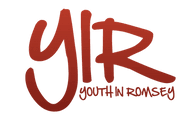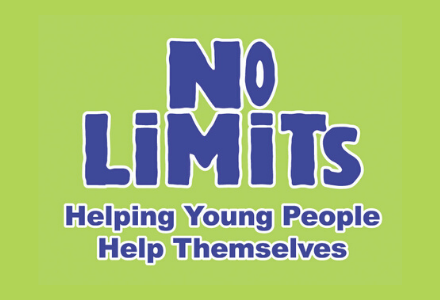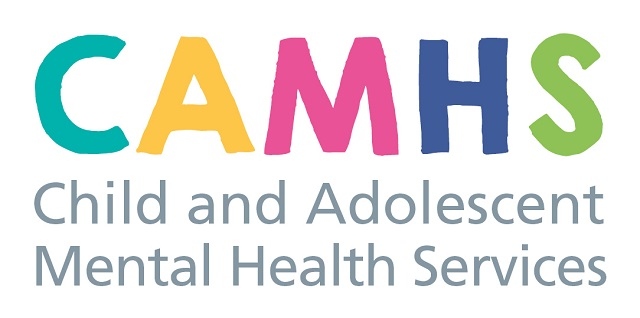Signposting Support
There are lots of great organisations that provide a range of services to support students and their families, we have collated this information below.

 Youth in Romsey is a support centre that offers a confidential advice, support and information service for young people from the ages of 6-25 years.
Youth in Romsey is a support centre that offers a confidential advice, support and information service for young people from the ages of 6-25 years.
They offer a variety of services including; counselling, careers advice, sexual health services, youth clubs and an open door to those who need our support.
 No Limits is a charity offering free and confidential information, advice, counselling, advocacy and support to children and young people under the age of 26 in Southampton and Hampshire. Young people can come to No Limits for free support on a wide range of issues including housing, homelessness, debt, employment, relationships, sexual health, mental health and substance misuse.
No Limits is a charity offering free and confidential information, advice, counselling, advocacy and support to children and young people under the age of 26 in Southampton and Hampshire. Young people can come to No Limits for free support on a wide range of issues including housing, homelessness, debt, employment, relationships, sexual health, mental health and substance misuse.
 Hampshire CAMHS are an NHS service that aims to help young people up to the age of 18 who are finding it hard to manage their emotional and psychological health, and who are suffering with acute, chronic and severe mental health problems.
Hampshire CAMHS are an NHS service that aims to help young people up to the age of 18 who are finding it hard to manage their emotional and psychological health, and who are suffering with acute, chronic and severe mental health problems.

Eating disorders are a range of conditions that can affect someone physically, psychologically and socially. They are serious mental illnesses and include anorexia,
Bulimia and binge-eating disorder. Over 725,000 men and women in the UK are affected by eating disorders. Although serious, eating disorders are treatable conditions and full recovery is possible. The sooner someone gets the treatment they need, the more likely they are to make a full recovery.
Please click on the links below to find more information about supporting your child.
- NHS: Advice for parents on how to support a child with an eating disorder.
- Young Minds: a place for young people to understand eating disorders and how to get support.
- BEAT: A UK based eating disorder charity. Founded in 1989 as the Eating Disorders Association, they offer useful information and support.
- Bodywhys: A website that provides support, awareness and understanding of eating disorders amongst the wider community as well as advocating for the rights and healthcare needs of people affected by eating disorders.
- NEDA: National Eating Disorders Association booklet for parents and carers providing them with a detailed toolkit.

Self-harm is behaviour that is done deliberately to harm oneself, this can include cutting, burning, bruising, or taking an overdose. Self-harm is often used as a way of managing difficult emotions without being a suicide attempt. Sadly, due to the growth oF the internet and social media information about self-harm is more accessible than ever.
Signs to look out for include unexplained cuts, keeping themselves covered; avoiding swimming or changing clothes around others, being withdrawn or isolated from friends and family and low mood.
The links below offer information on alternatives to self-harm.
Practical Matters: A useful three-page guide to help parents and carers support their child. This includes distraction techniques and alternative coping strategies.
Alumina: Previously known as Self Harm, this is a website and resource for 11-19 year olds that provides free online self harm support.
There is also a section for parents and carers that includes free webinars and information sheets as well as online courses.
This website provides additional information on supporting boys who self harm, Autism and self harm and first aid advice.

The internet is an amazing resource but it is not without its risks. It is essential to keep children safe online in an ever-changing environment. The COVID-19 pandemic means children are online more than ever.
Click on the links below to find out more about helping your child say safe online.
- National Online Safety: You can find a wide range of NOS guides on our website. You can also find more information on how to make the internet a safer place for children. National Online Safety share knowledge that parents and carers need to understand around online dangers and how best to react should an incident arise.
- Vodafone: A free digital parenting guide on how to help your child enjoy using apps, games and devices safely with Digital Parenting Pro. The interactive Digital Parenting Pro resource provides helpful information about what parental controls and safety settings are available across the most popular apps, games and devices.
- NSPCC: Advice on how to talk to your child about staying safe online, parental controls and online wellbeing.
- Think You Know: The CEOP Education team is a part of the National Crime Agency and they run an education programme which provides training, resources and information for children and young people aged 4 - 18, their families and professionals who work with them.

👤If you are struggling, you are not alone.
👥There is always someone you can reach out to. If a friend or family relative can’t help, you could try:
📞🧑💻Childline 0800 1111 or online via childline.org.uk
🧑💻Kooth.com provide free, safe and anonymous support for those struggling.
💬Chat with their team about anything you are struggling with, either via their online messenger service or using the live chat function.
💬 Text 'SHOUT' to 85258 for 24/7 free text service.
Youth in Romsey - although the centre is closed, you can still get in contact with them:
🧑💻Via their website = www.YiR.org.uk
📧Email = youthinromsey.yir@gmail.com
📞Or leave a message on 07443508418
- Teen Sleep Hub: Support for teenagers who are struggling to have healthy sleep patterns.
- Place 2 Be: The official organisers of Children's Mental Health Week, they provide resources for children of all ages and their families to support good mental health and wellbeing.
- Young Minds: This charity provide a great deal of support for parents and children on a wide range of topics around supporting good mental health.
-
STEM4: stem4 is a charity that promotes positive mental health in teenagers and those who support them through the provision of mental health education, resilience strategies and early intervention.
This is primarily provided digitally through their innovative education programme, pioneering mental health apps, clinically-informed website and mental health conferences that contribute to helping young people and those around them flourish.

Children can find it difficult to understand what has happened when someone dies.
They will often be aware of the tension and distress of the adults around them. What
they understand and how they respond will vary depending on their age, previous
experience and individual personalities.
Please click on the links below to find more information about supporting your child.
- Simon Says: Local bereavement charity for children and young people up to the age of 18 who have someone dying or who has passed away.
- Winston’s Wish: Family support for those who are bereaved or coping with a serious illness.
- Child Bereavement UK: Support for children up to the age of 25 and their families who are grieving or when a child dies.
- Scotty’s Little Soldiers: Charity for Bereaved British Forces Children:
- Widowed and Young: Peer support for widows under 50.
- Shine: For those with cancer in their 20, 30s, 40s and 50s.
- Rip Rap: For Teenagers whose parents have cancer:
- Barnados: A useful booklet to support parents/carers explaining death.
- Children and bereavement - NHS: The following information could help if your child has lost or is about to lose someone, such as a family member or friend. It also signposts a wider range of support services available.
